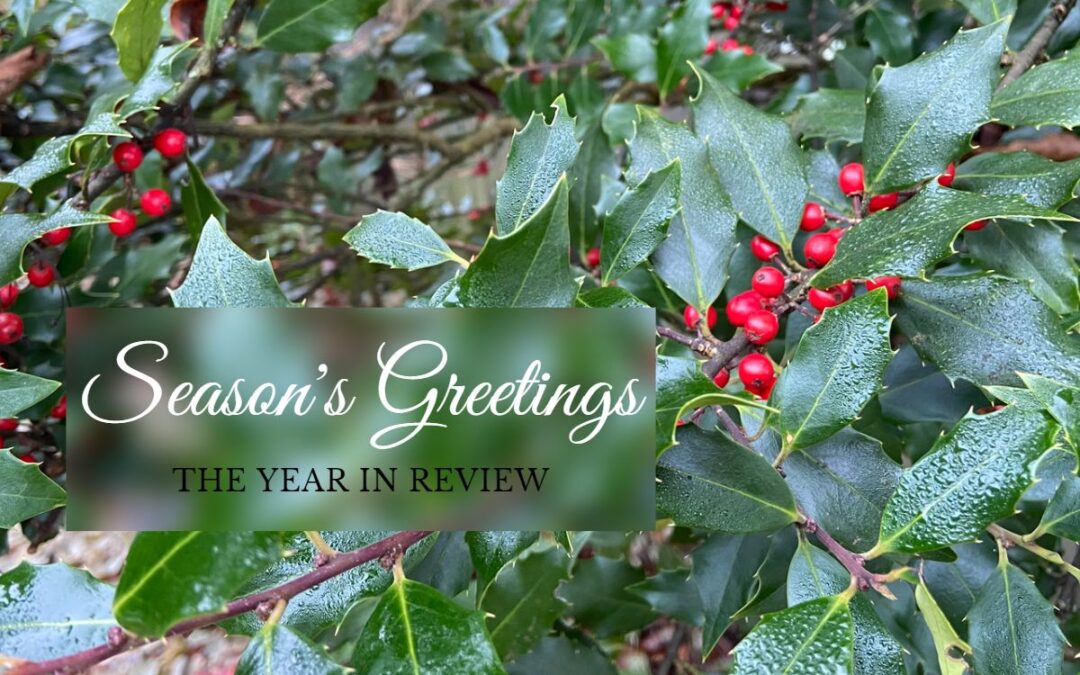The Year in Review
Just as it signals the end of the sun’s journey to the north and its welcome return to the south, winter solstice portends the end of another calendar year and the beginning of winter, a time of joyous celebration and quiet reflection. Many peoples around the world mark this transition with a variety of festivals.
It has been a breakthrough year. Restrained over the two previous years by the pandemic, GTEC forged a partnership with False Creek Friends Society and revitalized its vision of developing an educational centre (the False Creek Climate Response Centre), a place where people can gather, learn and evolve solutions to the many climate change challenges we face. Granville Island, visited by three to seven million people every year, local residents and tourists alike, is the iconic heart of Vancouver and its transformation from a toxic, industrial environment into a beautiful centre of arts, culture and food, one of its proudest achievements. Granville Island seems like an ideal location for such a Centre.
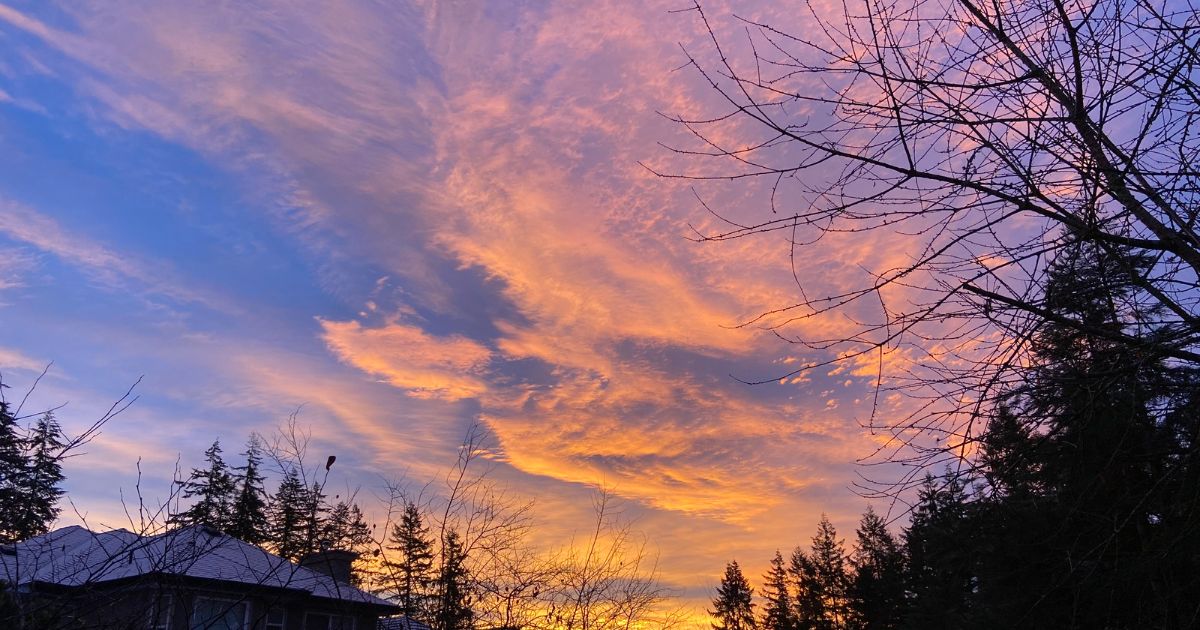
But, as we are realizing and coming to terms with, Granville Island has another history. One hundred and eighty years ago it was a sand bar in the midst of marshland and a favourite fish trapping spot for the Squamish people. A Squamish village called Sen̓áḵw was located on the shores of False Creek under the present-day Burrard Bridge. Squamish Hereditary Chief, Ian Campbell taught us that seven Indigenous nations had various claims to fish and hunt in this fertile area. All of this changed in the early 19th century as waves of European settlers usurped this land and turned Granville Island into an industrial site centred on milling the logs from the first growth forest the settlers were busy tearing down. What had been a sand bar was built up with sludge dredged from deepening the Creek.
Like many such shoreline environments around the world, the Island is vulnerable to rising tides and water tables. Coastal adaptation is a must in such environments. Part of the exciting challenge of locating on Granville Island is that it is a living laboratory for coastal adaptation and an important opportunity to play our part in Indigenous Reconciliation. But, the truth of our current situation is that all environments on the planet are stressed.
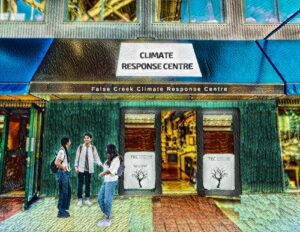
Climate Response Centre Mock-up Location
Over the course of the year, GTEC and False Creek Friends Society shaped thinking about the False Creek Climate Response Centre to the extent that we have submitted a major proposal to the federal Department of Oceans and Fisheries in late December. Earlier in the fall, the Trottier Foundation supported the Centre with developmental funds. The first of its kind in Canada, the Climate Response Centre is a scalable, multi-faceted resource that serves the people of the Granville Island and False Creek area and the surrounding City of Vancouver community. What makes this Centre unique is its commitment to direct engagement with the community, focus on coastal adaptation and emphasis on education.
The Climate Response Centre will be populated with six major programs:
- Coastal Adaptation
- Community Development and Education
- Health and Well-Being Support Services
- Indigenous Engagement
- Media and Communications
- Research and Development
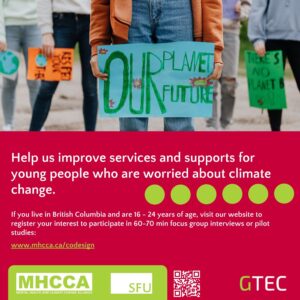
GTEC – MHCCA Study Recruitment Poster
Also, with support from MHCCA and the youth civic engagement team at CityHive, GTEC is evolving a community development model, called Reimagining Community Futures, based on the most recent findings in social psychology, cognitive psychology and neuroscience. In the New Year, GTEC and the Federation of Community Social Services will meet to consider funding for piloting this program with the social services sector (#2 above). All of these developments are consistent with GTEC’s conviction that a constructive response to the climate crisis depends on educating the public and building community, as well as on science and technology.
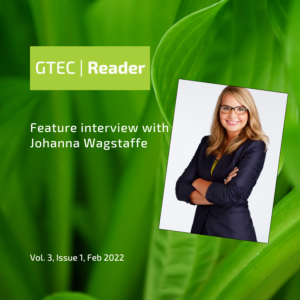
Since its inception in January 2020 GTEC’s free access, online quarterly arts and culture publication, the GTEC Reader has focused on the impact of climate change, responses, and solutions. For example, see CBC meteorologist, Johanna Wagstaffe’s thoughts about the climate crisis in vol. 3, issue 1.
The Reader’s diverse team is led by experienced editor, Mary Kean. The Reader is supported by regular blog posts on the GTEC website, as well as social media in the forms of Facebook and Instagram (@gteccanada), giving GTEC well established means of producing educational materials and communicating with the public.

